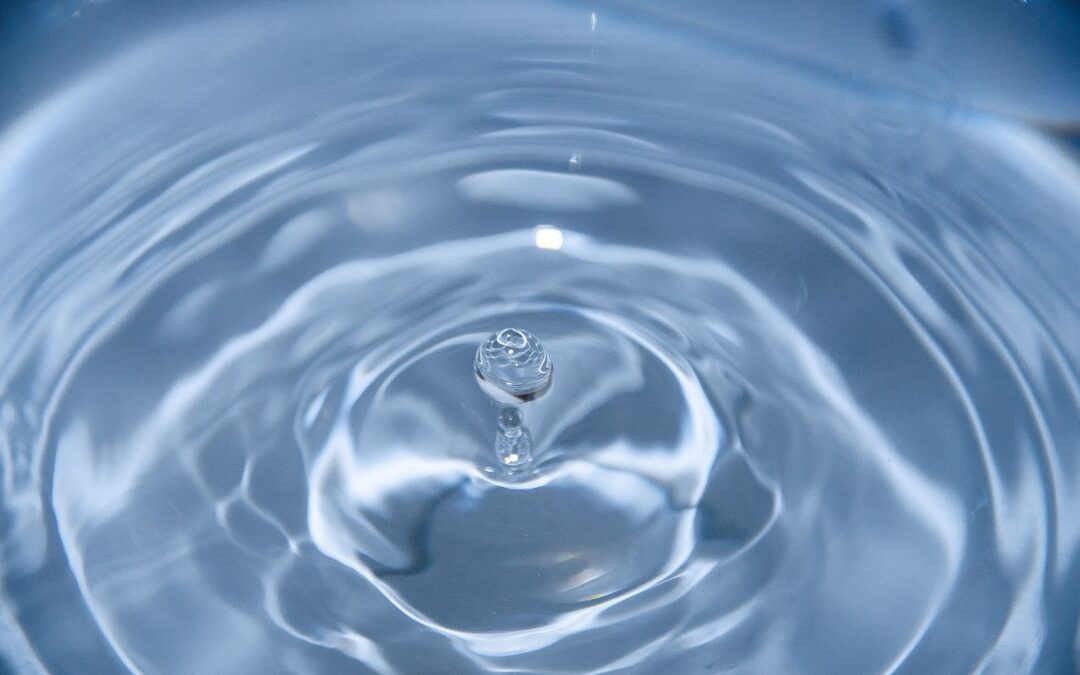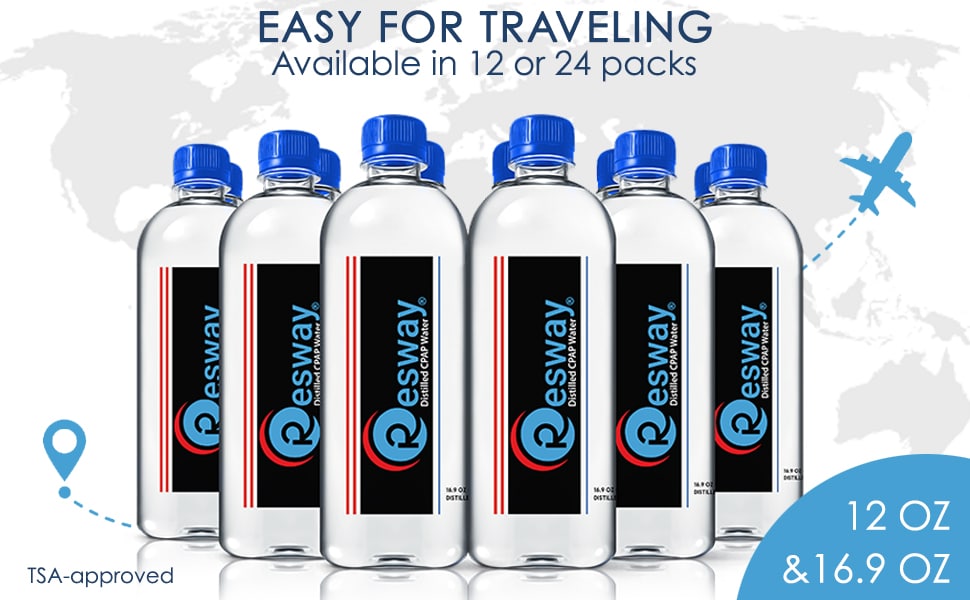CPAP machine water safety is a critical aspect of maintaining effective CPAP therapy and ensuring the health of users. However, the water used within these machines’ humidifiers must be carefully managed to prevent the introduction of contaminants. These contaminants can range from minerals to bacteria, all of which pose various risks to users’ health.
In this article, we’ll delve into the types of water suitable for CPAP machines, identify potential contaminants, and discuss how to mitigate the risks they present. We aim to equip you with the knowledge to ensure your CPAP therapy remains safe and effective.
Understanding CPAP Machines And CPAP Therapy
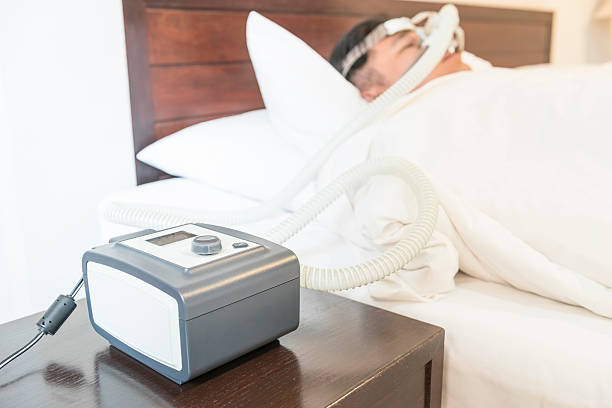
Ensuring safe water for CPAP machine use is fundamental to the efficacy and safety of CPAP therapy, a common treatment for obstructive sleep apnea. A CPAP machine works by delivering a continuous stream of pressurized air through a mask, which helps to keep the airways open during sleep. This consistent airflow is crucial for preventing the breathing pauses characteristic of sleep apnea, thereby improving sleep quality and reducing associated health risks.
The heart of this therapy lies in the CPAP machine’s ability to provide continuous positive airway pressure, hence its name. The machine typically includes a motor, a hose, and a mask. The motor generates a steady air pressure, the hose delivers this air to the mask, and the mask channels it into the user’s airways.
The use of the right type of water in CPAP machines, particularly in their humidification systems, is essential. A CPAP humidifier adds moisture to the air delivered by the machine, preventing dryness and irritation in the airways. However, if the water introduced into this humidifier isn’t pure, it can lead to the growth of bacteria or the accumulation of mineral deposits, which can harm both the user and the device.
Therefore, understanding the various types of water, such as tap water, bottled water, and purified water, and their effects on CPAP machines is crucial in CPAP therapy. This knowledge helps ensure the longevity of the device and the health of the user.
The CPAP Humidifier And Water Chamber
The interplay between a CPAP machine and water safety is exemplified in the design and function of the CPAP humidifier and its water chamber.
The humidifier is an integral component that attaches to the CPAP machine, responsible for adding moisture to the pressurized air that is delivered to the user. This moisture helps to alleviate dryness and irritation in the nasal passages and throat, which can be side effects of the dry air provided by the CPAP machine.
The water chamber, also known as the CPAP water chamber, is where distilled water is typically stored and converted into humidity. The quality of water used in this chamber is pivotal; impurities in water can lead to the growth of bacteria or mold, which can then be inhaled by the user. Moreover, the presence of minerals in non-distilled water, such as tap water or mineral water, can result in mineral buildup that can damage the machine and reduce its efficiency.
For these reasons, it is recommended to use distilled water in CPAP machines to prevent mineral deposits and microbial contamination, thus ensuring the longevity of the device and the safety of the therapy provided.
Types Of Water And Their Impact On CPAP Functionality
CPAP machine water safety is a subject of paramount importance, especially when considering the types of water used in these devices.
Tap water
While easily accessible, it can contain chlorine, minerals, and other impurities that may lead to the accumulation of mineral deposits within the CPAP water chamber. These deposits can not only damage the machine’s components over time but also pose a health risk due to the potential for bacterial growth.
Bottled water
Another option that CPAP users might consider. However, it often contains minerals that, similar to tap water, can contribute to mineral buildup. While generally cleaner than tap water, it is not the best choice for CPAP machines for the same reasons.
Spring water
Although natural, it carries the same concerns as tap and bottled water regarding mineral content. It is not distilled, and therefore, can leave mineral deposits in the machine.
Distilled water
Typically recommended for CPAP machines due to its purity. It has undergone a process of boiling and condensation, removing minerals and contaminants. This makes it the safest choice for CPAP machine and water safety, preventing mineral buildup and ensuring that the air humidified by the CPAP machine is clean and safe to breathe.
Risks Of Contaminated Water In CPAP Machines
Understanding how to use CPAP machine safely is crucial for patients relying on these devices for sleep apnea treatment. The type of water used in the machine’s humidifier is a critical component of this safety.
Contaminated water introduces risks, as it can harbor microbial contaminants like bacteria and fungi, which flourish in damp environments. When inhaled, these pathogens can cause respiratory infections or worsen existing health conditions. This risk is amplified for individuals with compromised immune systems, making the purity of water in CPAP machines an essential consideration.
The issue of mineral deposits is also a significant concern. Hard water, which contains high levels of minerals such as calcium and magnesium, can lead to the accumulation of these minerals within the machine. This buildup not only hampers the machine’s efficiency and longevity by clogging the humidifier and other components but can also affect the quality of CPAP therapy.
Mineral-heavy water may leave deposits that are not only difficult to clean but can also degrade the seals and other parts of the machine, leading to leaks and decreased performance. To mitigate these risks, it is crucial to use water that meets the purity standards necessary for safe CPAP operation.
Water Treatment Options For CPAP Safety
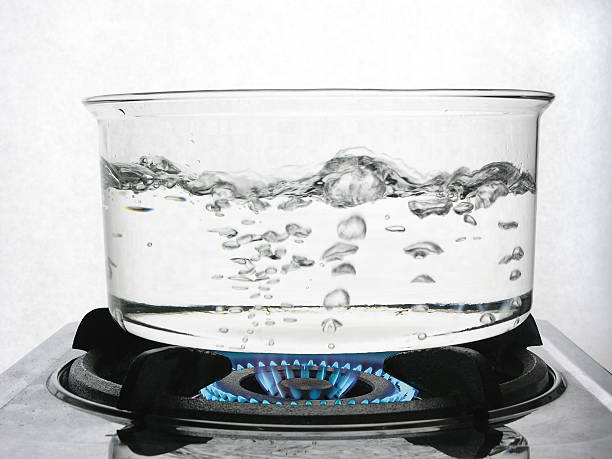
When it comes to CPAP machine water safety, understanding the various water treatment options available is essential for ensuring the longevity of your CPAP machine and the health of its user.
Each method has its benefits and limitations:
Boiling Water
- Benefits: Boiling is effective in killing microbes, making the water safer from a microbiological standpoint.
- Limitations: It does not remove minerals, which means mineral content remains the same, and frequent boiling can be impractical.
Bottled Water
- Considerations: While more convenient than boiling, bottled water often contains minerals which can deposit into the machine. The safety of bottled water for CPAP use also varies depending on the source and processing.
Reverse Osmosis Water
- Benefits: This water has been filtered through a semi-permeable membrane, which removes many contaminants, including minerals.
- Limitations: Reverse osmosis systems can be expensive and require regular maintenance.
Filtered Water
- Benefits: Water filters can remove many types of impurities, depending on the filter type, including chlorine, some minerals, and particulates.
- Limitations: Not all filters remove all contaminants, and they must be replaced regularly to maintain their effectiveness.
By considering these water treatment options, CPAP users can make informed decisions about the best way to manage their CPAP machine and water safety, ensuring effective and hygienic CPAP therapy.
Purchasing And Using Distilled Water For CPAP Machines
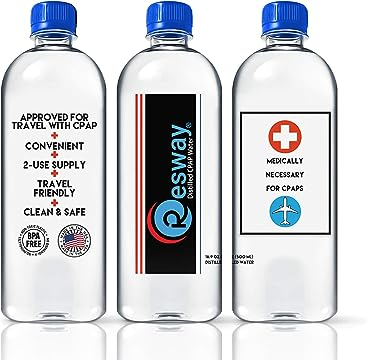
Distilled water is the gold standard for CPAP machines due to its purity and the benefits it offers for both the equipment and the user’s health. To purchase distilled water, consumers can usually find it in grocery stores, pharmacies, or medical supply stores. For added convenience, it’s also available for order online through our Amazon store, Resway.
The benefits of using distilled water in CPAP machines include the prevention of mineral deposit buildup, which can prolong the life of the machine and ensure that the air humidification process remains clean and effective.
When it comes to storing and handling distilled water, it’s important to keep it in a cool, dry place away from direct sunlight to maintain its purity. Use distilled water within a week of opening to avoid contamination. For unopened containers, users should observe the expiration date and handle them with clean hands when pouring the water into the CPAP water chamber.
Cleaning And Maintenance Of CPAP Water Chambers
Regular cleaning and maintenance of CPAP water chambers are vital for preventing mineral buildup and ensuring the long-term safety and functionality of CPAP machines.
Here’s a step-by-step guide to keeping your CPAP water chamber in top condition:
- Daily Cleaning:
- Empty any leftover water from the water chamber every morning.
- Rinse the chamber with warm, soapy water.
- Use a soft cloth or brush to gently clean the chamber, then rinse thoroughly with distilled water.
- Weekly Sanitization:
- Soak the water chamber in a mixture of one part vinegar to three parts distilled water for 15-30 minutes to disinfect and remove any mineral residue.
- After soaking, rinse the chamber with distilled water to remove any vinegar smell.
- Regular Inspections:
- Check for signs of wear or damage, such as cracks or discoloration, which can harbor bacteria and minerals.
- Proper Storage:
- After cleaning, let the water chamber air dry on a clean, lint-free towel.
- Store the chamber in a dry, protected area to avoid dust and recontamination.
- Replacement Schedule:
- Follow the manufacturer’s recommendations for replacing the CPAP water chamber, typically once every 6-12 months, to prevent issues caused by wear and tear.
Alternative Solutions And Tips
CPAP machine water safety is of utmost importance for users who rely on these devices for a good night’s sleep. Beyond the standard use of distilled water, there are alternative solutions and practical tips to maintain the purity required for your CPAP machine:
- Home Purification Methods:
- Utilize water filters that can reduce certain mineral content and impurities, making tap water safer for occasional use in a CPAP machine.
- Consider purification tablets, which are designed to disinfect water and are a practical option when you don’t have access to distilled water.
- Commercially Available Products:
- Invest in CPAP-specific water filters or sterilization machines that are made to ensure the water meets the safety standards for CPAP use.
- Look for CPAP cleaners that use activated oxygen or ultraviolet light to sanitize the water chamber and hose.
- Travel Tips:
- Do some research in advance to find out which stores sell distilled water at your destination.
- Carry portable water purification devices that are compatible with CPAP machines, ensuring you can use the local water supply safely.
Conclusion
The importance of CPAP machines and water safety in CPAP therapy cannot be overstated. It is a foundational aspect that ensures the effectiveness of the treatment and the well-being of the user. Adhering to best practices for water use, such as opting for distilled water and regularly cleaning and maintaining equipment, is crucial for anyone who depends on a CPAP machine for restful sleep.
For added convenience and assurance, CPAP users can turn to our online store, Resway, which specializes in providing high-quality respiratory sleep products. By choosing Resway for your CPAP needs, you ensure a seamless experience in maintaining CPAP machine water safety.
Let’s remember that the small steps we take in maintaining our CPAP machines can have a significant impact on our overall health and therapy success. Stay safe, breathe easy, and sleep well.



